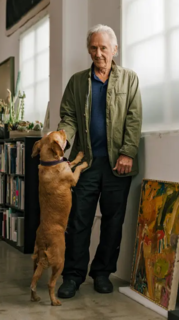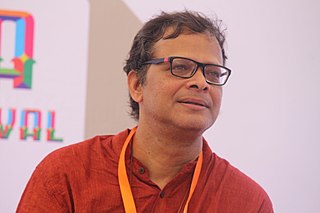A Quote by Edward Ruscha
When I began painting, all my paintings were of words which were gutteral utterances like Smash, Boss, Eat. Those words were like flowers in a vase.
Related Quotes
He should have known better because, early in his learnings under his brother Mahmoud, he had discovered that long human words (the longer the better) were easy, unmistakable, and rarely changed their meanings, but short words were slippery, unpredictable changing their meanings without any pattern. Or so he seemed to grok. Short human words were never like a short Martian word - such as grok which forever meant exactly the same thing. Short human words were like trying to lift water with a knife. And this had been a very short word.
He was always part of her thoughts, and now that he was real, he was inescapably part of her life, but it was as she had told her mother: saying he was part of her or that they were more than friends sounded like love, but it seemed like loss as well. All the words she knew to describe what he was to her were from love stories and love songs, but those were not words anyone truly meant.
Words got in the way. The things we felt the hardest--like what it was like to have a boy touch you as if you were made of light, or what it meant to be the only person in the room who wasn't noticed--weren't sentences; they were knots in the wood of our bodies, places where our blood flowed backward. If you asked me, not that anyone ever did, the only words worth saying were I'm sorry.
After a time I found that I could almost listen to the silence, which had a dimension all of its own. I started to attend to its strange and beautiful texture, which of course, it was impossible to express in words. I discovered that I felt at home and alive in the silence, which compelled me to enter my interior world and around there. Without the distraction of constant conversation, the words on the page began to speak directly to my inner self. They were no long expressing ideas that were simply interesting intellectually, but were talking directly to my own yearning and perplexity.
Certain individual words do possess more pitch, more radiance, more shazam! than others, but it's the way words are juxtaposed with other words in a phrase or sentence that can create magic. Perhaps literally. The word "grammar," like its sister word "glamour," is actually derived from an old Scottish word that meant "sorcery." When we were made to diagram sentences in high school, we were unwittingly being instructed in syntax sorcery, in wizardry. We were all enrolled at Hogwarts. Who knew?
Harry constantly repeated Dumbledore's final words to himself. "I will only truly have left this school when none here are loyal to me. ... Help will always be given at Hogwarts to those who ask for it. "But what good were these words? Who exactly were they supposed to ask for help, when everyone was just as confused and scared as they were?
And when he had put his hand on mine with a cheerful look, wherefrom I took courage, he brought me within to the secret things. Here sighs, laments, and deep wailings were resounding through the starless air; wherefore at first I wept thereat. Strange tongues, horrible utterances, words of woe, accents of anger, voices high and faint, and sounds of hands with them, were making a tumult which whirls always in that air forever dark, like the sand when the whirlwind breathes.
The disciples were absorbed in a discussion of Lao-Tzu's dictum: "Those who know, do not say; Those who say, do not know." When the master entered, they asked him what the words meant. Said the master, "Which of you knows the fragrance of a rose?" All of them indicated that they knew. Then he said, "Put it into words." All of them were silent.
You can give words, but you can't take them. And when words are given, that is when they are shared. We remember what that was like. Words so real they were almost tangible. There are conversations you remember, for certain. But more than that, there is the sensation of conversation. You will remember that, even when the precise words begin to blur.
In other words, it is what I do in the world that matters. When I traveled for three months in the Mideast, the places I wanted to go back to were Turkey and the Gaza Strip. It has to do with what Gandhi said: he found God in the eyes of the poor. Those are the places which were so moving that they were just unbearable.
I didn't go to bookshops to buy. That's a little bourgeois. I went because they were civilized places. It made me happy there were people who sat down and wrote and wrote and wrote and there were other people who devoted their lives to making those words into books. It was lovely. Like standing in the middle of civilization.








































